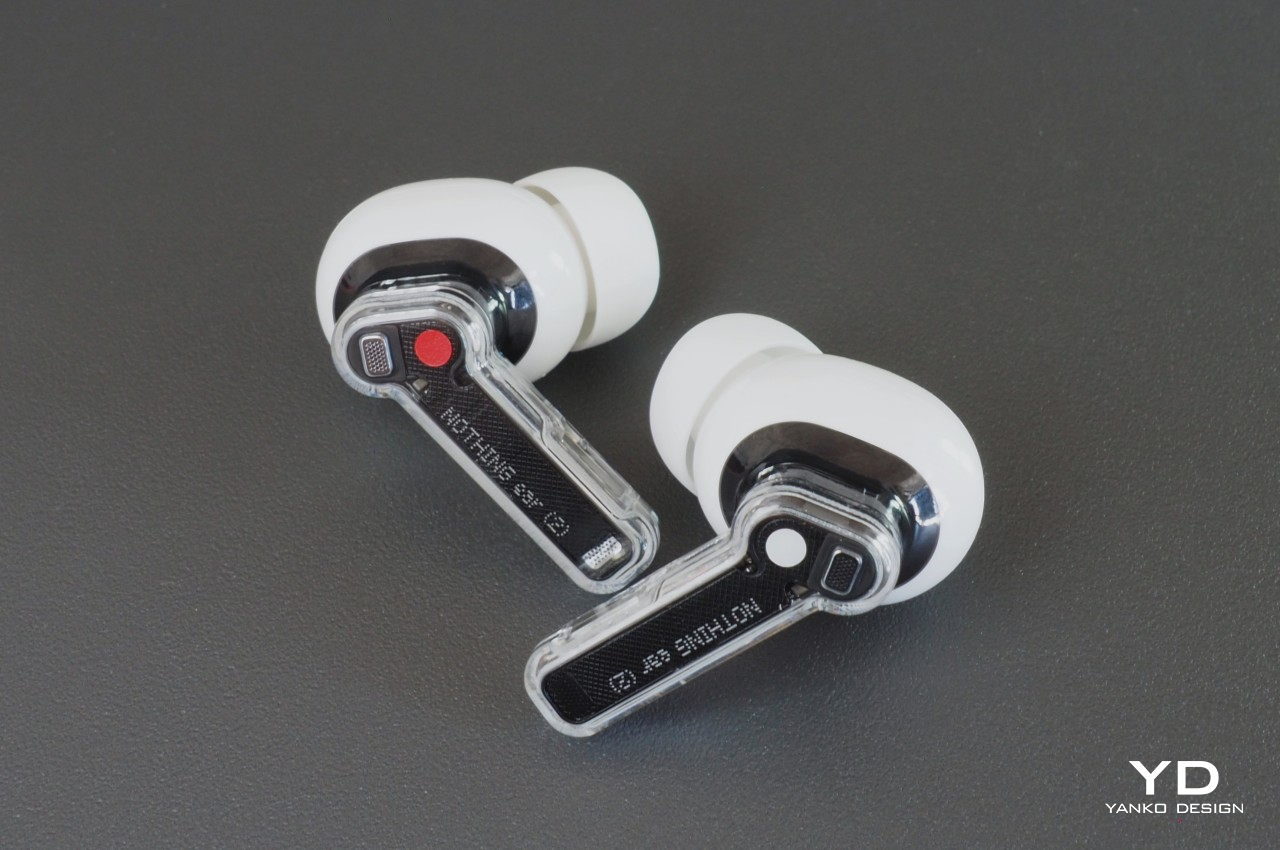
PROS:
- Unique, distinctive design
- Personalized sound profiles
- Well-balanced performance for price
- Clear sustainability strategy
CONS:
- Noticeable wind noise despite ANC
- Available only in white
- Visually identical to Ear (1)
The removal of headphone jacks from smartphones initiated by Apple caused a surge in the number of wireless earbuds in the market. That, of course, also gave birth to the need for good earbuds designs, though many, unsurprisingly, were content to just copy the leading brands. It isn’t always about looking different, though, since a unique design might also end up being unusable or don’t deliver an adequate level of performance. Form and function should always go hand in hand in the first place, and that seems to be the goal of the second-gen Nothing Ear (2) TWS earbuds, keeping what worked and refining what needed improvement. Given the reputation of the first-ever Nothing product, we just had to take it for a spin to check if its successor sounds as clear as it looks.
Designer: Nothing
Aesthetics
With so many TWS buds looking like AirPods knockoffs, it’s not surprising that some manufacturers have tried moving away from that design with mixed results. Some have gotten rid of stems completely, while others have added wings. Nothing’s strategy wasn’t to go overboard by changing the shape of the buds and instead gave it a distinct character with a transparent stem that truly set it apart from the crowd.
The Nothing Ear (2) retains this character and, in fact, looks eerily similar to the Ear (1). You could almost call this the Ear (1.5) or Ear (1) II because of how little it has changed, at least on the outside. Internally, however, this new pair definitely steps up the game enough to be called a successor. This theme of not changing what isn’t broken is pretty much the essence of the Ear (2), and it’s not exactly a bad thing.
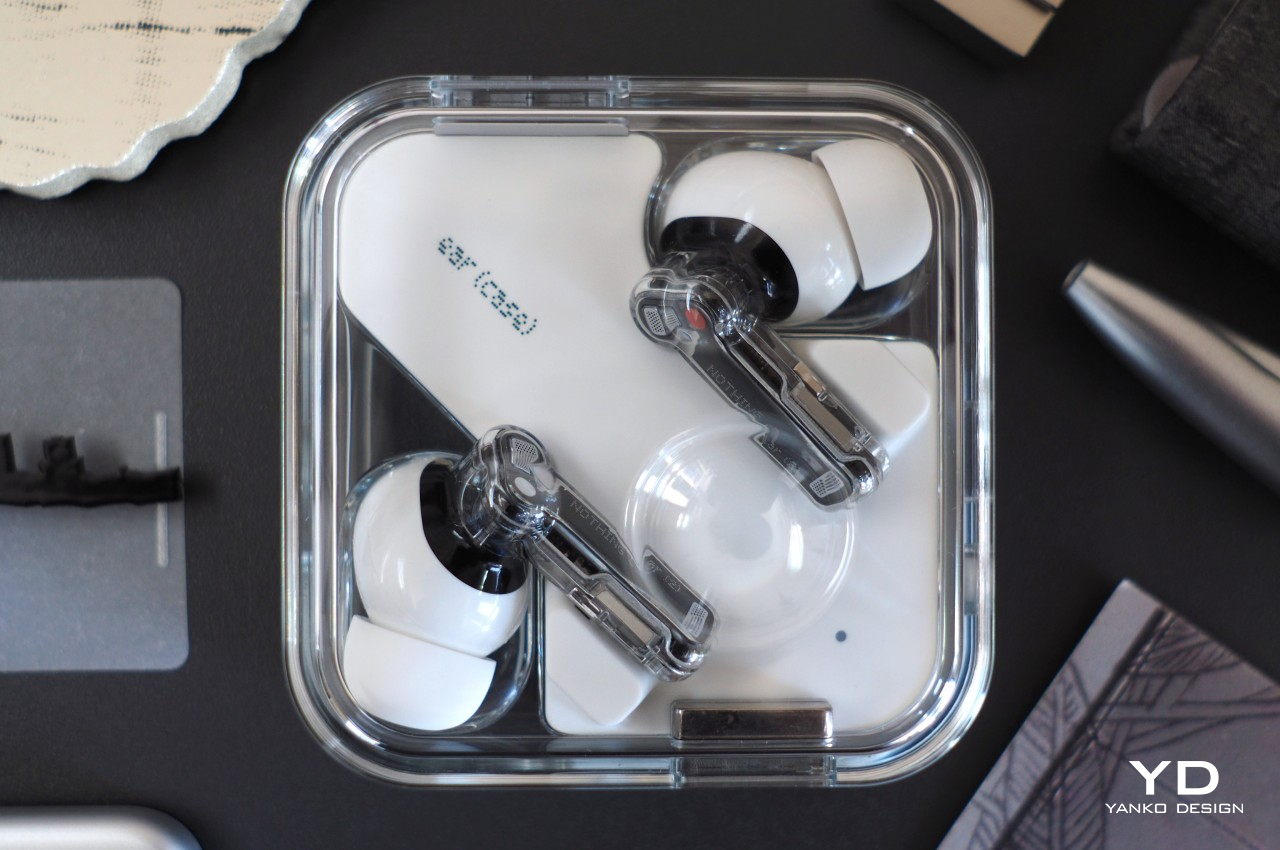
There are some visual differences, of course, though you’ll find them mostly on the charging case. The rounded box’s edges are squarer now, and the white panel on the bottom is slightly raised to act as a protective bumper. The case is made of a new material that’s supposed to make it more resistant to scratches, though ours showed slight marks very early into the game. What hasn’t changed is the dimple on the top cover that still lets you twirl the case around between your fingers like a fidget toy.
In terms of looks, you’d be forgiven if you mistook the Ear (2) for the Ear (1). Those who expected something more sensational from Nothing’s first product might walk away disappointed yet again. It’s not a complete loss, though, because using the same design helps reinforce the Nothing Ear’s image as a fun and enjoyable product, now made even better, at least on paper. One knock against it, however, is that Nothing doesn’t have plans on making the Ear (2) available in any other color, at least for now. That could very well change in the future, just like how the black Ear (1) eventually came to be.
Ergonomics
Since there isn’t much of a difference from the first Nothing earbuds, it shouldn’t be a surprise that the Ear (2) is just as comfortable. In fact, the buds’ more compact design makes it a wee bit lighter at 4.5g, but that doesn’t reduce its ergonomic performance in any way. It has a secure fit and won’t suddenly fall off your ear while you’re moving around or even just talking, which we can’t say the same for other buds we’ve tested.
One thing that takes that comfort and fit to the next level is the new Ear Tip Fit Test. It goes beyond just letting you pick tips that you’re comfortable with but also makes sure that they form a proper seal in your ears for the best audio. This test is the first part of Nothing’s new Personal Sound Profile feature that truly makes the buds yours, putting you in the driver’s seat of your listening experience and enjoyment.
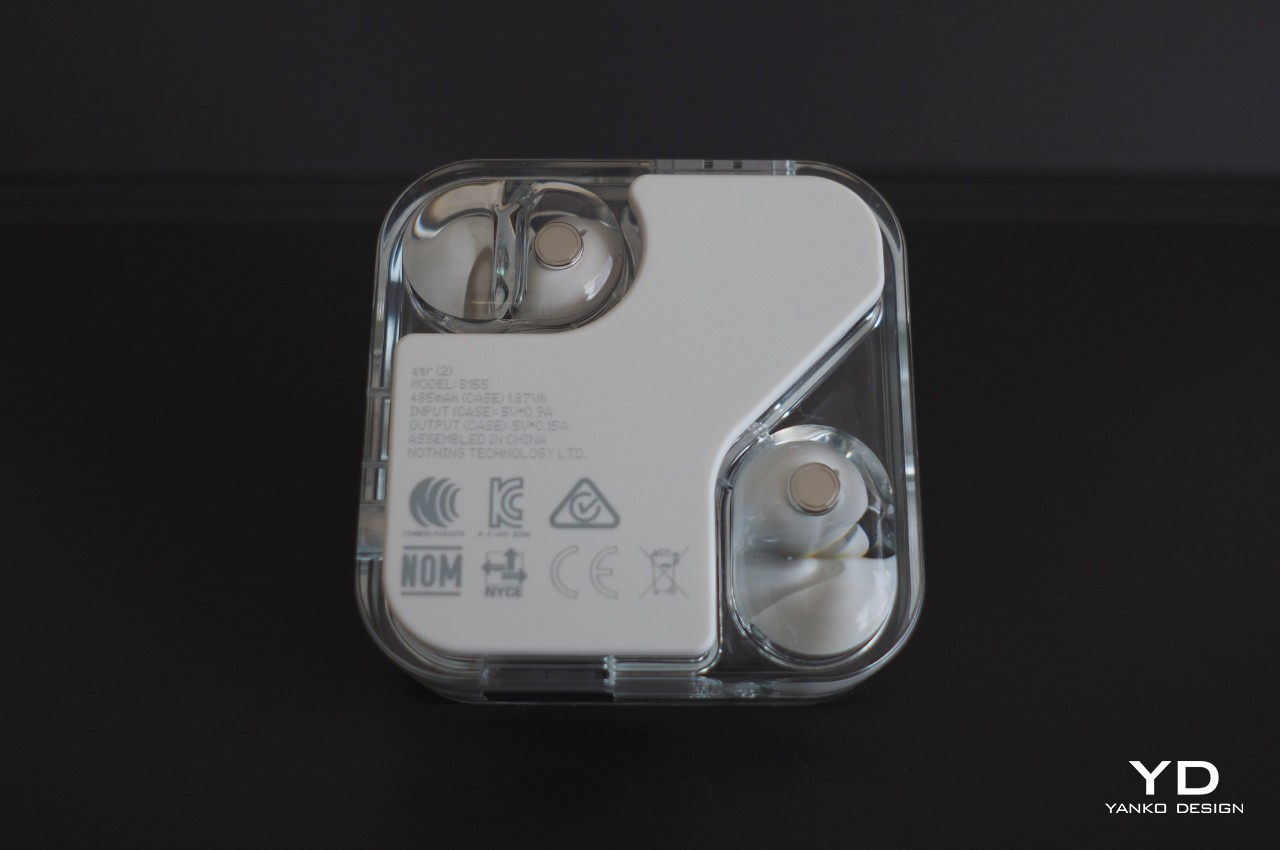
Another invisible change that Nothing made for the comfort of its customers is the way you control the buds. It has done away with taps and slides, which are often error-prone and are easily triggered by accident. With the Ear (2), you press or squeeze the stem for more intentional control, and each of the actions can be customized through the Nothing X mobile app.
Performance
If the Ear (2) looks a lot like the Ear (1) on the outside, the hardware and software upgrades inside make all the difference in the next-gen product. It is, unfortunately, also the reason why these new features can’t be made available to the first Nothing Ear, because that older pair doesn’t have the necessary hardware to support those nifty treats. Then again, that’s also the reason why you’d want to buy a new Ear (2) in the first place.
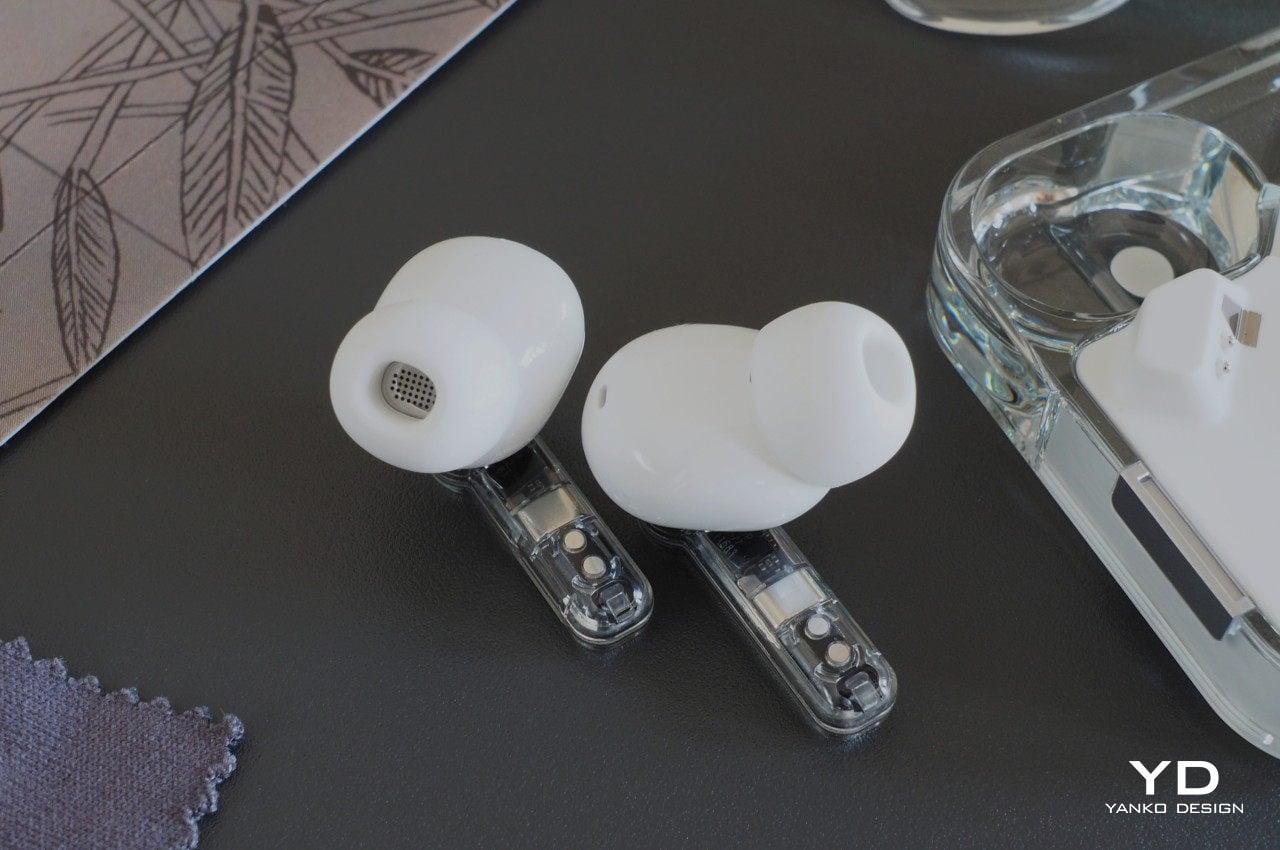
In addition to a more powerful chipset and more stable Bluetooth connection, the Ear (2) now features a custom 11.6mm driver that’s paired with a new diaphragm. That diaphragm combines a softer polyurethane (PU) material to let lower frequencies come through and a more rigid graphene for more sensitivity to higher frequencies. These new parts are enclosed in a similarly new dual-chamber design that expands the sound space and increases airflow.
What all these mean in practice is that the Nothing Ear (2) delivers an impressive audio quality that is clear and full, regardless of the range. You get mighty bass and crisp vocals from every tune or podcast that you play through it. But not everyone hears the exact same way, and this is where the Ear (2) really shines. It introduces the Personal Sound Profile test powered by Mimi, the same hearing test app certified for medical hearing devices, to a personalized equalizer setting formed around what you can hear and can’t hear. The test is a simple series of questions that try to determine your hearing range, and the settings are all automatically done based on the results. Of course, you can still choose your own settings if you prefer, but the generated equalizer will be great for users that don’t have much audio expertise.
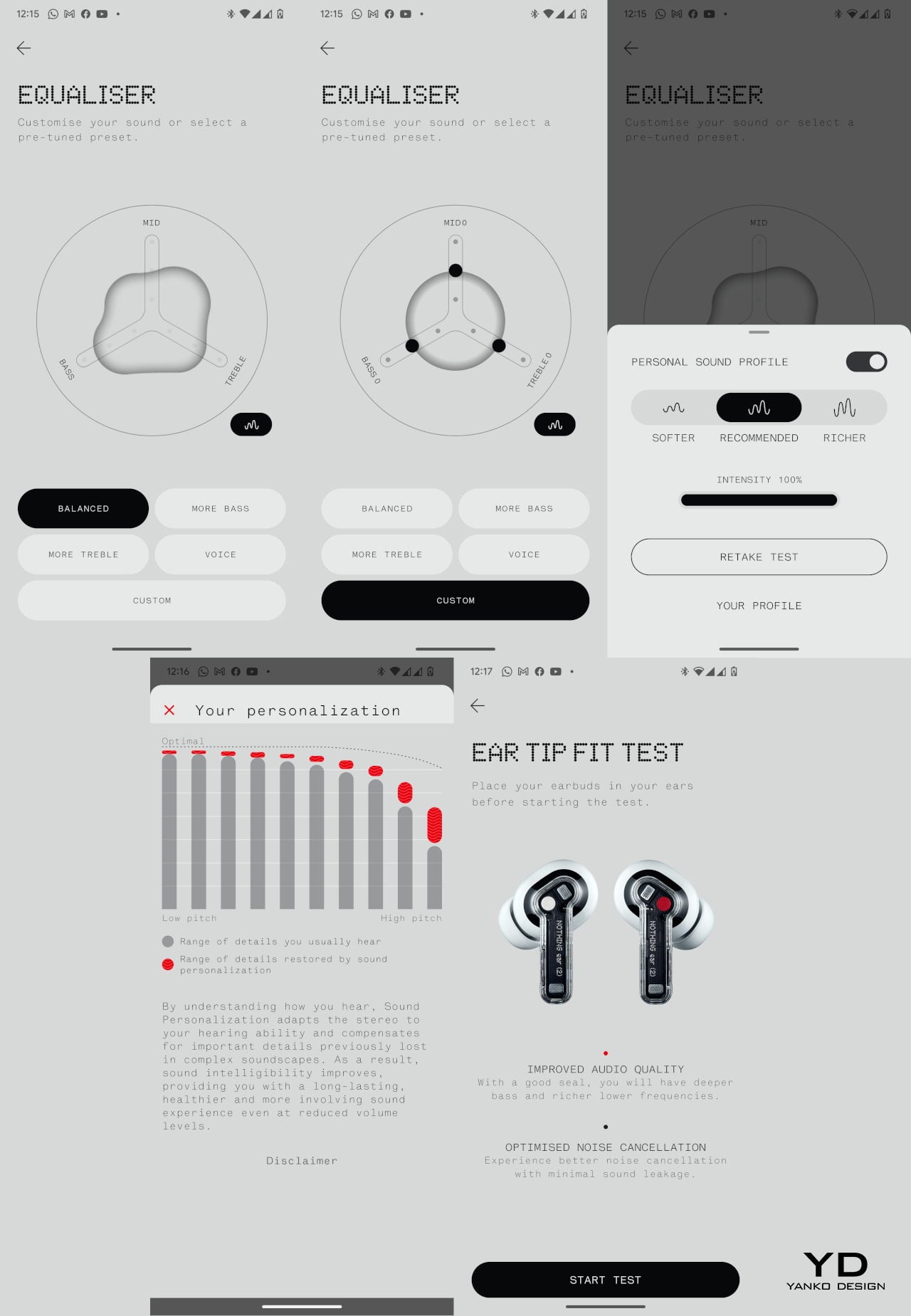
The Ear (2) now also offers three levels of Active Noise Cancellation or ANC, letting you decide just how much of the outside world you want to let in. You can even let the buds decide the best level for you with Adaptive Mode, taking into account the amount of distracting noise around you. While it does work in general, we still heard some wind gusts while riding our bike, something we didn’t experience on another pair of buds.
Nothing did retain some of the “fan-favorite” features from the Ear (1), most notably, a low-latency mode for playing games and the ability to detect whether you’re wearing the buds or not. For the Ear (2), Nothing adds the ability to connect to two Bluetooth sources simultaneously, allowing the buds to switch between calls from your phone and music from your laptop as needed. The charging case still supports both USB-C wired as well as wireless charging, and you can even charge it on top of the Nothing Phone (1) if you have one.
Sustainability
Finally, we get to review a consumer electronics product that does have a word or two to say about the environment. Given how wireless earbuds are littering the market, there’s some comfort in knowing that there are companies acting responsibly to make sure they don’t litter the planet as well. Make no mistake, the Ear (2) is still mostly made from non-sustainable materials like plastic, but Nothing deserves some kudos for not only taking steps to minimize its carbon footprint but also making it clear what those steps are.
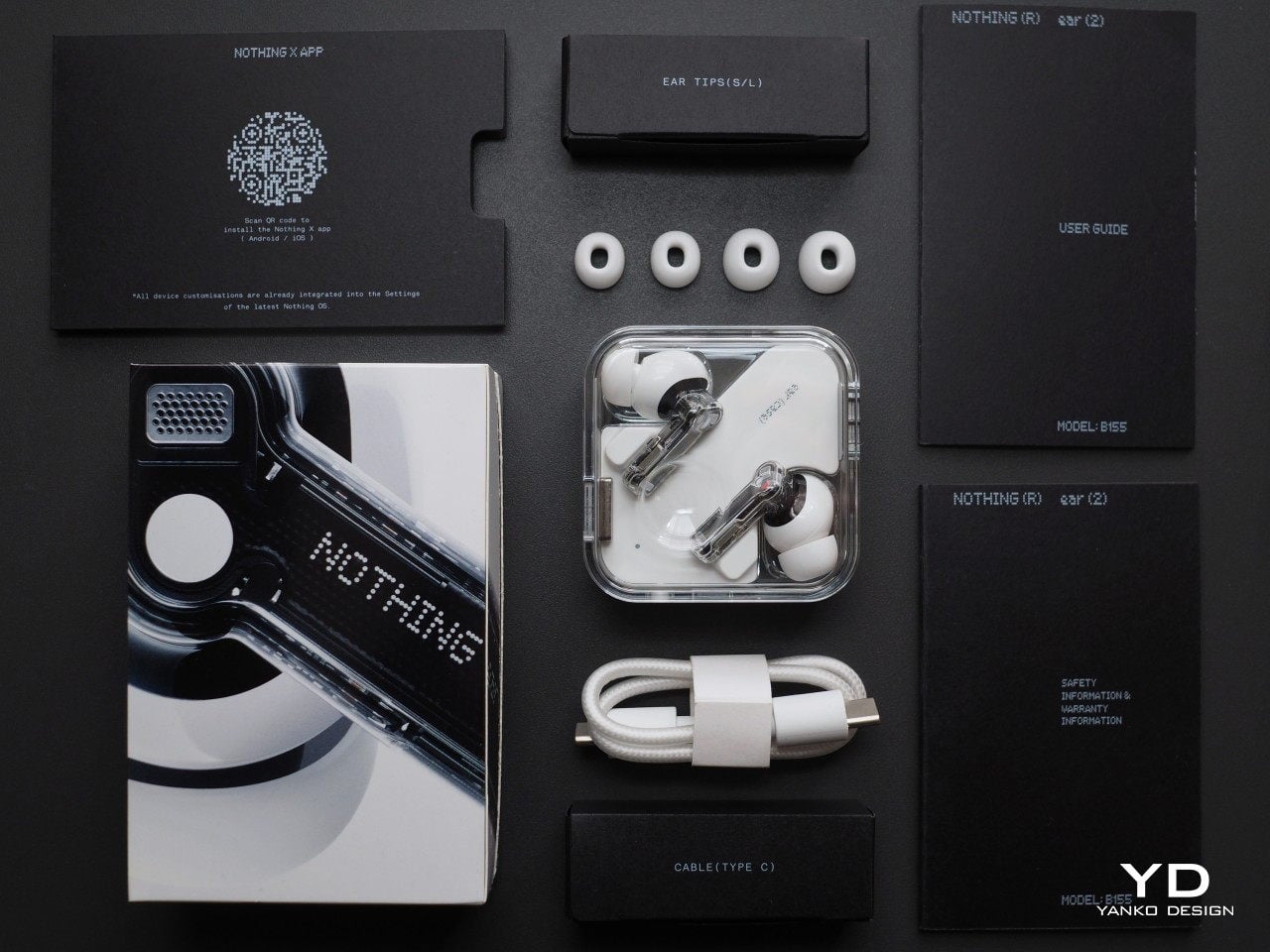
The circuit boards for the Ear (2), for example, are made from 100% recycled materials. It would be great if the plastics were also made similarly, but that could happen after Nothing has checked off all the other important boxes for its buds. The company does claim that it uses renewable electricity in manufacturing this product and that its lifetime carbon footprint is only 3.1kg of carbon dioxide equivalent. And, of course, there’s the plastic wrap-free packaging, which should be the standard for mobile devices and accessories by now.
Value
People seem to go through earbuds at a worryingly rapid rate, so they’re always on the lookout for great deals and prices. There is also a very wide range of prices for these products, and some are not always worth their weight in gold, while others turn out to be unexpected treasures. At $149, the Nothing Ear (2) will clearly be compared with the likes of higher-end TWS earbuds that sit a little below the luxury line. The good news is that you get what you pay for and maybe even more.
For that price tag, the Ear (2) delivers the quality you’d expect but also wraps it in a personalized experience tailored to your unique hearing profile. It’s not absolutely perfect, and some audiophiles might prefer buds coming from more established brands, but those usually cost twice as much. You also don’t get a head-turning design with those, and the Ear (2) definitely stands out in that respect.
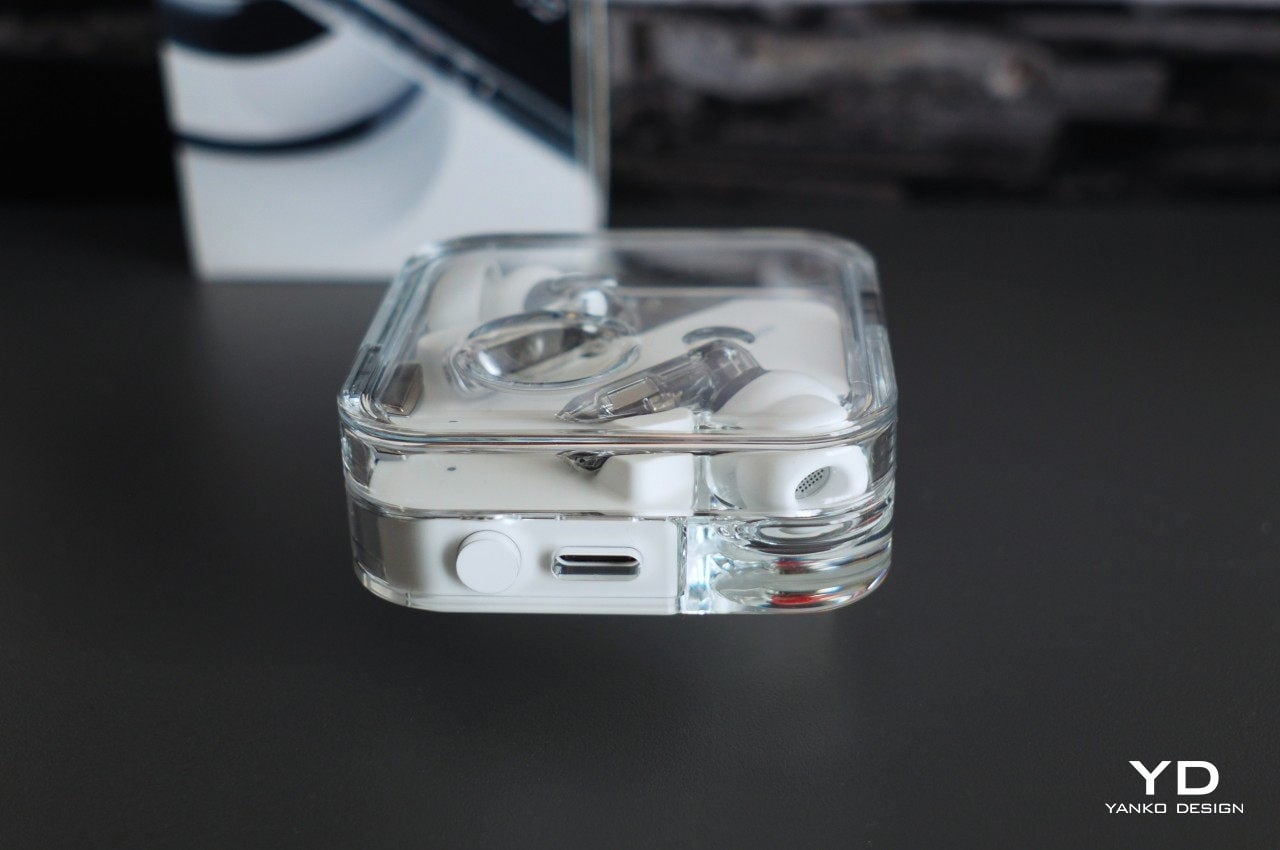
Verdict
There was some degree of disappointment over the Ear (1) due to the hype it generated before its launch, but its reception and review definitely satisfied naysayers. There’s always room for improvement, of course, and that is what the Ear (2) is bringing to the table. Going beyond just delivering impressive audio quality, it gives people more control over their listening experience, from personal sound profiles to customizable controls. All in a design that is distinctive, popular, and striking.
The decision to buy a new pair might be more difficult for those who already own the Ear (1) and are happy with it. Then again, the Ear (2) is replacing its predecessor, so this is pretty much the only way forward anyway. In terms of design, the second-gen buds isn’t a sensational and revolutionary new product, but its careful and calculated approach to iterative improvement makes the Nothing Ear (2) deserve a place on your shopping list.
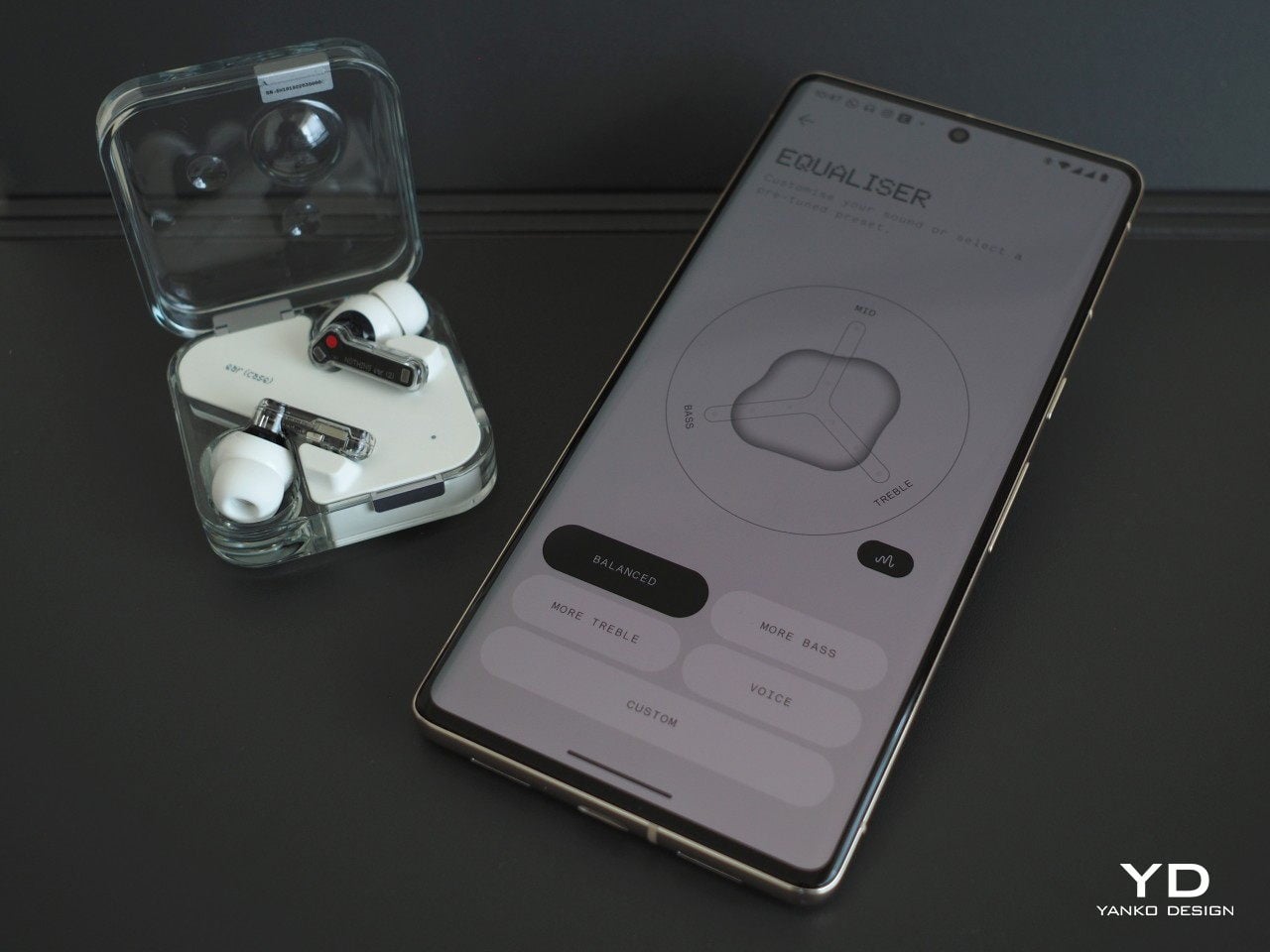
The Nothing Ear (2) launches on nothing.tech starting March 22nd and will be available in the Nothing Store in Soho as well as Kith stores worldwide on March 23rd. Open sales begin on March 28th from online and in-person partner stores globally, including Stock X in the US.
Aki Ukita contributed to this review.
The post Nothing Ear (2) Review: An Exercise in Iterative Refinement first appeared on Yanko Design.
No comments:
Post a Comment